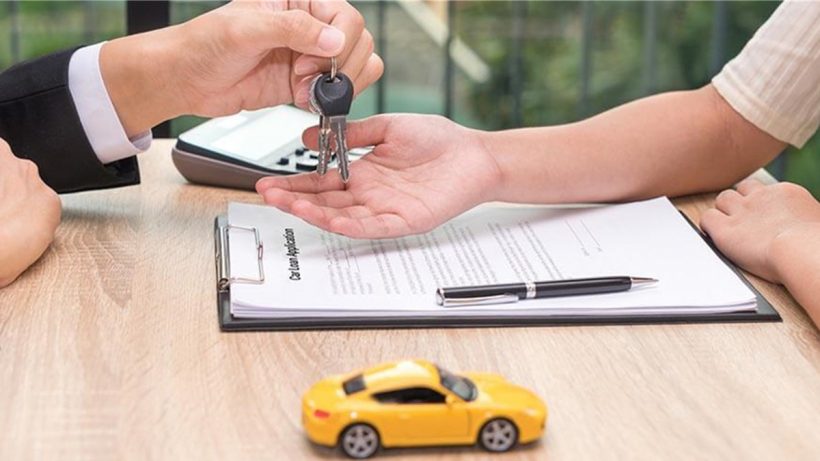Regardless if you plan on getting a new or used car, there are certain steps you need to follow to make sure the vehicle you’ll own is the best for you and fits your needs. Besides taking into consideration details such as the car brand, model, or color, you might want to take your time to assess your finances and plan a budget. According to a study from Capital One, a bank holding company, only 24% of future car owners allocate a minimum of one year to save money for a vehicle. Before you do this step of buying a car, it is recommended to give yourself enough time to make an informed decision, as you might want to make sure you give attention to every detail.
Depending on the car type you want and the reason why you need it, then the features and characteristics of the vehicle differ. If you live in a crowded city, you might want to get a car that is easy to drive and is cost-effective, whereas if your job requires you to travel, one of your necessities might be that you need a vehicle with enough trunk space.
So, if you have decided your next step is to invest in a vehicle, the following guide might help you lay the groundwork needed to decide on the right car for you.
Research throughout the entire buying process

When you start saving money, it is of the utmost importance you begin thorough research. If you’re not very informed about car features and engine characteristics, this is even more vital. Indeed, you want to know as much as possible before spending your saved money on a vehicle that isn’t right for you, an aspect which you can avoid by simply researching and asking automobile experts or mechanics any questions you might have.
If you have always wanted and dreamed of a specific car, it is crucial to gather information about it to make sure that what you desire is also what you need. Otherwise, you can end up being stuck with the car of your dreams but disappointed if reality didn’t match your expectations. Therefore, researching car types and their features, fuel consumption, whether you want it to be with manual or automatic shift, or maybe you wish to get an electric or hybrid – these are all details you should take into consideration.
What to look for in your future car

A noteworthy mention would be to keep gathering information until you are ready to decide on a car, so not just at the beginning when you look at different car models and brands. It is essential you go to different dealerships and research online to be able to compare and contrast prices and available deals. Plus, don’t underestimate the importance of test-driving possible vehicles, as this way you can properly see how you feel driving the car.
When you decide you want to test-drive a specific vehicle, it would be best to schedule an appointment with a dealership to make sure you get enough time. Plus, when you are at this stage in the buying process, it is recommended you choose two or three other cars you would like to test. This way, you have more options, and you can compare driving the vehicles.
The way in which you can decide and narrow down your choices is by thinking of your needs. For instance, you might want to consider getting a small SUV, such as the one from Suzuki.com.au, if you live outside the city and you need to travel or commute quite often. This type of car offers a lot of room, so you are comfortable while driving. In addition, there is enough room in the trunk for your luggage. Not to mention, it could be a suitable car if you have a family. In contrast, if you live in the city and have to move around easily during rush hour, a smaller car, such as a coupe, could be a better option for you. So, depending on your needs and based on thorough research, choose a few options you can test-drive so you can ask additional questions and make an informed decision before the purchase.
Personal finances and buying options
Depending on your financial stability, you will be eligible for different loans. Also, it is essential to evaluate your income and personal finances to see if you need to save more for a down payment or if you prefer taking a bigger loan. Besides, you will have monthly payments – whether it is a lease or paying interest on a loan – so it is crucial you consider this when you work out your budget. So, even if you can afford the initial payment, be mindful of the fact that it is necessary to plan in advance for any other costs or expenses. For instance, you will need car insurance, which will also need to be factored into your budget.
Among the buying options available, depending on your financial situation, you can decide between:

- Personal loan: this is the option where you borrow money from a bank or a lender. If you decide to do this, you will have to pay back the amount in monthly installments, plus an interest fee. What’s more, it is advisable you research different banks to see your options and compare their prices, fees, and other requirements.
- Leasing: Contract hire, or personal leasing, means that you will rent your car. More specifically, you will be paying an amount of money over a limited period of time. This is a good option for people who want to change their cars. With leasing, you are required to give back the vehicle at the end of the contract.
- Hire purchase: Compared to personal leasing, if you decide on the option of hire purchase, you can keep the car when the agreed period ends. Payment is made in installments, plus interest, after you have paid a deposit. The recommendation is only to choose this option if you know for sure you’ll be able to commit to your payments. Otherwise, the car can be repossessed.

